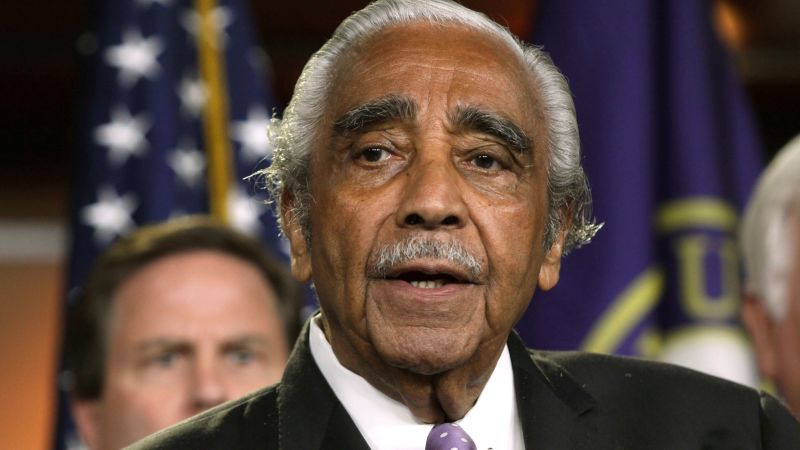Charles B. Rangel, a significant figure in the civil rights movement, an esteemed war veteran, and a pioneering congressman from New York, passed away on Monday at the age of 94. His passing marks the end of an era for countless individuals who were influenced by his dedication to public service and advocacy for social justice.
Rangel’s achievements were celebrated by the City College of New York, where he had a notable presence as the Statesman-in-Residence. It was here that he initiated the Charles B. Rangel Infrastructure Workforce Initiative, designed to enhance job opportunities in the critical areas of infrastructure across Manhattan and the Bronx, regions he cherished and called home for nearly a century. This initiative aimed to uplift communities and ensure sustained growth within the neighborhoods that shaped his own early life.
Rangel’s monumental journey in public service began when he was first elected to Congress in 1970, where he went on to serve an impressive 23 consecutive terms. His legislative legacy includes co-founding the Congressional Black Caucus, a pivotal organization that has worked tirelessly to represent the interests of Black Americans in Congress. Additionally, Rangel distinguished himself as the first Black individual to serve as the Chairman of the House Ways and Means Committee, an influential position he held before retiring from Congress in 2017.
A key figure in Harlem’s political landscape, Rangel was the last living member of the “Gang of Four,” a powerful assembly of Harlem lawmakers alongside notable figures such as David Dinkins, Basil Paterson, and Percy Sutton. Each member played a crucial role in the political advancement of the African American community in New York, fostering a legacy of empowerment and progression.
Al Sharpton, a renowned civil rights leader and long-time acquaintance of Rangel, expressed his admiration through a heartfelt statement. Sharpton emphasized that Rangel and his peers had fought tirelessly to preserve “Black excellence” in Harlem and beyond, inspiring future generations to uphold their mission in advocating for justice and community upliftment.
Born on June 11, 1930, in Harlem, Rangel’s upbringing was marked by adversity. He faced a challenging childhood, witnessing familial violence, which ultimately resulted in the abandonment by his father, leading him to reside with his aunt and uncle. Leaving high school prematurely in 1947, Rangel sought purpose by enlisting in the U.S. Army. His military service included deployment to Korea, where he demonstrated exceptional bravery, earning a Purple Heart and a Bronze Star with Valor for his courageous efforts in rescuing fellow soldiers.
Following his honorable discharge from the Army in 1952, Rangel pursued higher education, utilizing the GI Bill to attend New York University and later obtaining a law degree from St. John’s University. His journey into politics began in 1966 when he was elected to the New York State Assembly. His political career proceeded alongside his commitments to the Civil Rights Movement; he participated in significant marches, including those in Selma and Montgomery, contending for equal rights and justice.
Throughout his tenure in Congress, Rangel stood as a prominent voice against drug trafficking and apartheid. His political acumen was evident in his leadership as Chairman of the House Ways and Means Committee, a title he assumed following a Democratic resurgence in Congress in 2006. However, Rangel’s career was not without challenges; he faced scrutiny from the House Ethics Committee, leading to a censure due to violations of House rules.
Tributes have poured in from prominent figures in the legislative world following Rangel’s passing. Senate Minority Leader Chuck Schumer remembered him as a great man who was unwavering in his fight for the betterment of his community. Similarly, House Minority Leader Hakeem Jeffries hailed Rangel as a transformative leader, emphasizing his legacy in shaping Harlem and America at large.
Charles B. Rangel’s life encapsulated the essence of perseverance, advocacy, and monumental achievement. His contributions left an indelible mark on the political landscape of New York and the broader civil rights movement. As we reflect on his legacy, it is imperative to carry forward the torch Rangel lit—a dedication to advancing social justice and uplifting communities.










